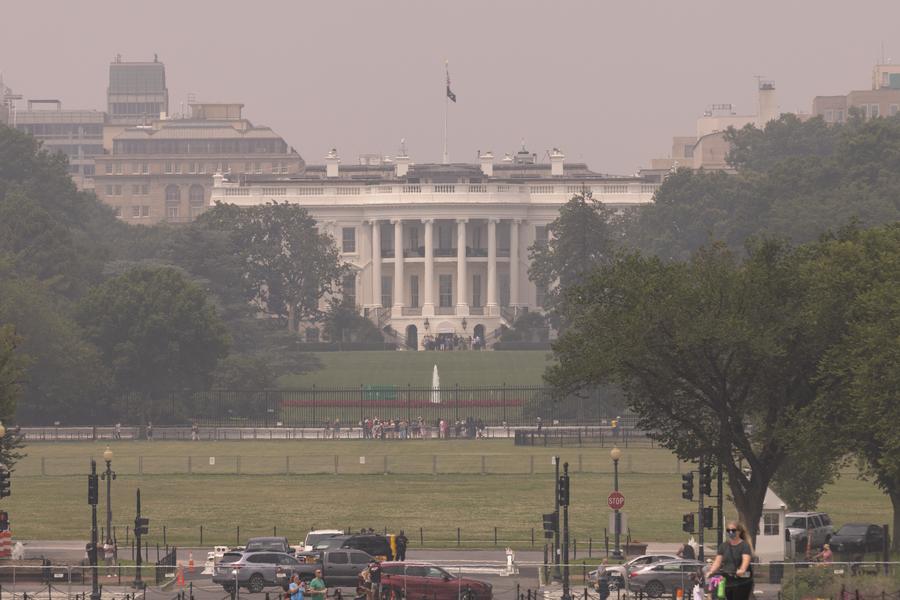Why does the U.S. have a trust deficit in Africa?
- A+
- A-

The White House is shrouded in haze in Washington, D.C., the United States, on June 29, 2023. (Photo by Aaron Schwartz/Xinhua)
African countries have long struggled with Washington's high-handed interference in their domestic affairs.
Guinea-Bissau political analyst Seco Cassama said that the United States completely ignores African realities, including "its traditions, its civilizations, always imposing its interests over those of Africans."
BEIJING/NAIROBI, Oct. 28 (Xinhua) -- Distrust of the United States has been growing across sub-Saharan Africa for decades, with recent developments widening the country's credibility gap and offering little hope for improvement.
Earlier this month, U.S. President Joe Biden postponed a trip abroad scheduled for Oct. 13-15, which included stops in Germany and Angola, opting instead to focus on preparations for Hurricane Milton's arrival in Florida.
Biden briefly visited Germany on Oct. 17-18, but his first trip to Africa as president has been postponed until December after the U.S. elections. For some African observers, the delay underscores the low priority of African affairs within U.S. political strategy.
Meanwhile, signs of dissatisfaction among African nations regarding U.S. involvement are growing. In August, Niger shut down the last U.S. military base in the country, declaring its military cooperation agreement with the United States "illegal." In May, Ethiopia dismissed a U.S. ambassador's remarks on its domestic issues as "unsolicited advice." These incidents point to a broader trend of skepticism and distrust toward U.S. intentions among African countries.
Despite Washington's continued influence on the continent, the enduring trust deficit remains a persistent challenge for U.S. leaders.
English阅读排行
-
0 阅读 2024-11-01 10:20
-
0 阅读 2024-11-01 10:20
-
0 阅读 2024-11-01 10:20
-
0 阅读 2024-11-01 10:20
-
0 阅读 2024-11-01 10:20
English热门推荐
-
0 阅读 2024-11-01 10:20

评论